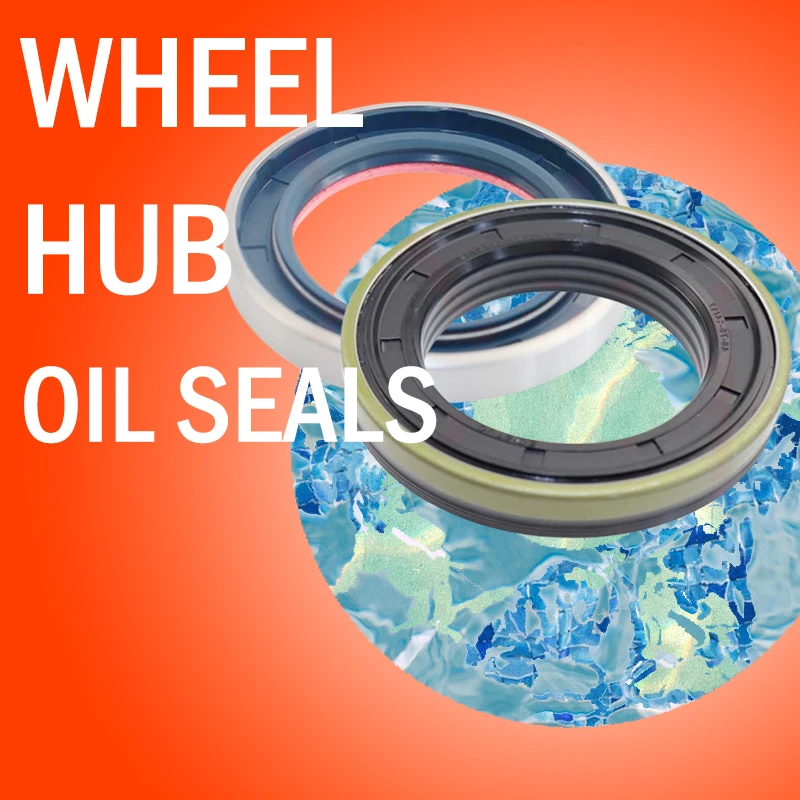Oct . 17, 2024 03:18 Back to list
Understanding the Importance of Wheel Hub Oil Seals in Vehicle Maintenance
Understanding Wheel Hub Oil Seals
In modern automotive technology, the wheel hub oil seal plays a crucial role in maintaining the integrity and functionality of vehicle wheels. Though often overlooked in routine maintenance checks, this component is essential for ensuring the longevity of the wheel bearing assembly, guarding against contamination, and maintaining proper lubrication.
What is a Wheel Hub Oil Seal?
A wheel hub oil seal, also known simply as a hub seal, is a specialized component placed at the junction where the wheel hub meets the axle. Its primary function is to prevent the leakage of lubricant from the wheel bearing assembly and to keep dirt, moisture, and debris from entering the bearings. The wheel hub oil seal provides a barrier that is essential for maintaining optimal performance, enhancing safety, and prolonging the life of the vehicle’s wheels.
The Importance of Wheel Hub Oil Seals
1. Protection Against Contaminants One of the most vital functions of the wheel hub oil seal is to keep contaminants such as dirt, water, and debris out of the wheel bearing assembly. If these particles manage to penetrate the seal, they can mix with the lubrication, leading to increased friction, wear, and potentially catastrophic failure of the bearing.
2. Lubrication Retention Proper lubrication is critical for wheel bearings to function smoothly. The wheel hub oil seal ensures that the lubricant remains contained within the bearing assembly, preventing leaks that could lead to inadequate lubrication. This containment helps in reducing excess heat buildup, ultimately enhancing the overall performance and efficiency of the wheel.
3. Enhanced Vehicle Safety A failure in the wheel bearing due to a compromised seal can lead to severe safety issues, including wheel lock-up or even detachment while driving. By maintaining a secure seal, these components contribute significantly to vehicle safety. Regular inspection of the oil seals can help prevent accidents caused by wheel-related failures.
wheel hub oil seal

4. Cost-Effective Maintenance Replacing a damaged wheel hub oil seal is significantly less expensive than the cost of replacing wheel bearings or repairing other associated components that may fail due to a compromised seal. Proactive maintenance, including checking seals during routine vehicle inspections, can save car owners from expensive repairs in the long run.
Signs of a Failing Wheel Hub Oil Seal
Detecting a failing wheel hub oil seal early can mitigate the risk of more severe damage. Here are some common symptoms to look out for
- Grease Leaks One of the most apparent signs of a failing seal is grease leaking from the wheel area. This leakage often indicates that the seal is no longer retaining the lubricant properly. - Unusual Noise A grinding or humming noise while driving can indicate that the bearings are not receiving the necessary lubrication, potentially due to a compromised seal.
- Vibration in the Wheel If the wheel becomes unstable or begins to vibrate while in motion, it may point to an issue with the bearings caused by a faulty seal.
- Rusted or Corroded Components If you notice rust or corrosion on the wheel bearing or hub, it may be a sign that the seal has failed, allowing moisture to enter the bearing assembly.
Conclusion
The wheel hub oil seal is a small but incredibly critical component of a vehicle's overall functionality. Understanding its purpose and recognizing the signs of failure can help vehicle owners take preventive measures to maintain their vehicles’ health. Regular checks and timely replacements of these seals not only ensure efficient performance but also contribute to the safety and reliability of the vehicle on the road. Prioritizing routine maintenance will ultimately enhance the longevity of your vehicle and provide peace of mind during each journey. Invest in the small components – they often play the biggest roles!
-
TCN Oil Seal Metal Ring Reinforcement for Heavy Machinery
NewsJul.25,2025
-
Rotary Lip Seal Spring-Loaded Design for High-Speed Applications
NewsJul.25,2025
-
Hydraulic Cylinder Seals Polyurethane Material for High-Impact Jobs
NewsJul.25,2025
-
High Pressure Oil Seal Polyurethane Coating Wear Resistance
NewsJul.25,2025
-
Dust Proof Seal Double Lip Design for Construction Equipment
NewsJul.25,2025
-
Hub Seal Polyurethane Wear Resistance in Agricultural Vehicles
NewsJul.25,2025
-
The Trans-formative Journey of Wheel Hub Oil Seals
NewsJun.06,2025
Products categories
















